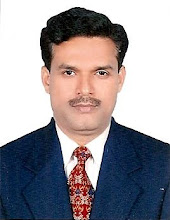With digital libraries, the notion of ‘freedom of information’ has become ossified. Capturing the attention of researchers, policy-makers, funding agencies, and practitioners alike, the concept of the “digital” or “virtual” library describes a new organizational form that is existing areas of research. Most of the well-publicized work that has been done on digital libraries has occurred in academic settings and has focused on the technical issues involved in digitizing, storing, organizing, and providing access to the content of these libraries.
There is a rang of issue and concerns that must be considered by those who are building and managing digital libraries which will vary with the setting within which the development effort takes place. Academic, special and public/School libraries operate under varying institutional, social, and economical constraints and it is reasonable to expect that researchers and practitioners exploring the possibilities of digital libraries will have access to different resources and will face different problems in their work.
The library and information professional will face tremendous challenges in the 21st century Because of the confluence of the revolutionary developments in the field of digitization and networking, etc. laws of library and information science according to the spiral of scientific method. The new challenges can be met in the light of the revised laws of information science. The emerging challenges and trends of the next millennium for library and information profession will be highlighted. Suggestions for evolving strategies to meet the challenges and opportunities available for the profession will also be delineated.
The relevance of Dr. S. R. Ranganathan’s ideas to meet these challenges will be explored. The emergence of Virtual electronic library, expert systems development and a widespread use of information networks for the dissemination and interactive use of information covering every facet of human life will become the order for the day. The vision and legacy of Dr. Ranganrhan will continue to be an inspiration and a guiding star for the emergence of the new library and information profession. To keep abreast and lead the information revolution of the new millennium the profession should strive for a dynamic approach in training and development with a new spectrum of specializations. These are essential to scenarios in information systems and related technologies; including content development, networking and more technique to meet the emerging user needs.
I feel that the human action and the information flow shall be the two most dominant inputs to sound development strategy. For this, the right information to right user needs to be the hands of the right people at the right time. The success does not rely on individual’s knowledge, but the knowledge of the organization. Information revolution and knowledge society are the two most important buzzwords of the 21st century. But world is yet to devise a clear concept and/ or definition of information, and for that purpose the relation between information and knowledge is not so differ. The situation is so alarming that there emerges a view that nobody knows what the information is!
Subscribe to:
Post Comments (Atom)





No comments:
Post a Comment